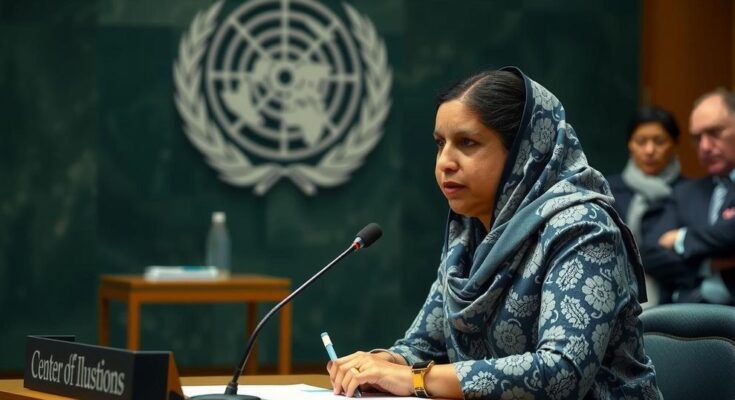Harj Narulla will argue for the Solomon Islands at the ICJ during historic climate change proceedings, addressing the obligations of States regarding greenhouse gas emissions. The Court will consider submissions from 110 parties, making this the largest case in its history. Two questions regarding international responsibilities and legal consequences for climate-related harm will be evaluated. Narulla’s presentation is set for December 5, livestreamed on the UN website.
Harj Narulla is set to represent the Solomon Islands at the International Court of Justice (ICJ) this week in what is considered a groundbreaking advisory opinion proceeding regarding climate change. This significant hearing will take place from December 2-13, 2023, where the ICJ will evaluate submissions from 98 States and 12 intergovernmental organizations concerning the responsibilities of States to mitigate climate change effects. This marks the largest assembly of submissions in the Court’s history.
Following a unanimous resolution by the United Nations General Assembly on March 29, 2023, the ICJ will address two pivotal questions. The first pertains to the international law obligations of States to protect the climate system and the environment from human-made greenhouse gas emissions. The second question focuses on the legal ramifications for States that cause significant harm to the climate and environment through their actions or inactions. This case is part of a wider context of advisory proceedings on climate matters currently before the International Tribunal for the Law of the Sea and the Inter-American Court of Human Rights.
Mr. Narulla will present the Solomon Islands’ position during a livestreamed session on December 5 at 4:00 PM CET, alongside the Solomon Islands Attorney General, John Muria. He represents the interests of the Solomon Islands through the Attorney General’s Office and the Pro Bono team at DLA Piper. Mr. Narulla has been actively involved in similar hearings earlier this year, having attended proceedings in Barbados and Brazil.
The International Court of Justice (ICJ) is the principal judicial organ of the United Nations. It settles disputes between States and gives advisory opinions on international legal issues. The topic of climate change has gained significant traction due to its global implications, leading to increased calls for legal accountability regarding State responsibilities. The current proceedings at the ICJ are historic as they seek to define these obligations under international law, which is critical as nations grapple with the impacts of climate change on future generations. This advisory opinion not only addresses the climate system but also seeks to provide a legal framework that could influence international climate policy and inform future negotiations.
In conclusion, the proceedings at the International Court of Justice this December represent a pivotal moment in the global response to climate change. The involvement of States, including the Solomon Islands, highlights the urgent call for accountability through international law. As the ICJ evaluates submissions and provides interpretations regarding the obligations of States, its findings will play a crucial role in shaping legal precedents and climate actions moving forward.
Original Source: www.doughtystreet.co.uk




